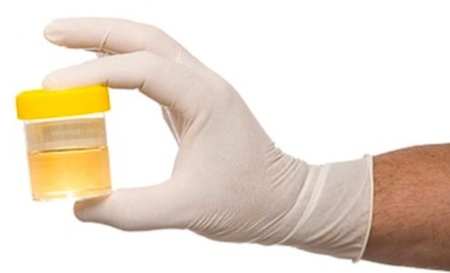Are you considering partaking in urine play? It is to your advantage to do a bit of research beforehand regarding the potential health concerns and risks involved; in order that you can make a properly informed decision regarding your consensual participation in this fetish act.

Urophilia – Urine Play 101 – a brief background
Sexual interest in urine play goes by many names. The more technical, scientific term is urophilia; colloquially, however, it is also referred to as “golden showers” or “water sports”. Urophilia involves the use of urine in sexual or fetish encounters, and may come in various forms. For instance, some folks want to urinate on other people, others want to be urinated on, some want to watch others urinate or wet themselves, and a few want to drink it. Most commonly though, one person urinates on their partner’s body, genitals, or face.
The receiving partner may even consume the urine (known as “urophagia”). The urine may be released directly into another person’s mouth, or may be put into a glass and offered for them to drink.
Another much more rare form is called a “golden bath”, and involves one partner urinating into the colon of another person during anal sex.
Most commonly, golden showers are used as part of dominant/submissive role-play, as the act often taps into some aspects of BDSM and power play.
Why do people like it?
– sensory play
– intimacy
– they like the smell or taste
– breaking society’s taboos
– they like watching it
– a form of dominant or submissive power exchange
– as a form of humiliation play
Is Urine Sterile? The Myth Destroyed
The myth that urine is sterile is a pervasive and lasting one. Even some doctors don’t know that this is just a myth. Urine is not sterile, even before it comes out of the human body and gets contaminated by skin. Bacteria are present at low levels even in the urine of healthy people not suffering from a urinary tract infection, (as presented at a conference of the American Society for Microbiology).

The myth about urine being sterile very likely dates back to a study of urinary tract infections (UTIs) conducted back in the 1950s — over 60 years ago! This misleading urban legend seems to have begun when epidemiologist Edward Kass, an infectious disease physician at Harvard Medical School, was looking for a way to screen patients for urinary tract infections before surgery.
Kass developed the midstream urine test (still used when you pee in a cup), and set a numerical cut-off for the number of bacteria in normal urine: not more than 100,000 colony-forming units (cell clusters on a culture dish) per milliliter of urine.
During this study, samples of urine that showed no signs of UTI were labeled as “negative.” A person would be listed as testing “negative” for bacteria in their urine, as long as the number of bacteria that grow in a lab dish containing the urine falls below this threshold – however, this did not mean that there no bacteria whatsoever.
However, the absence of a UTI — which is caused by an overgrowth of bacteria — isn’t the same as the absence of bacteria. This means that if a person isn’t healthy, fungus, bacterial, and viral infections can all be transmitted through their urine.
The human body is home to many different colonies of healthy bacteria. The urinary tract contains different types of bacteria. These are harmless unless they start growing out of control. When urine passes through the urinary tract, it becomes contaminated with bacteria. Drinking urine, whether your own or someone else’s, introduces bacteria into your system that can cause gastrointestinal problems or other infections.
More recent studies have shown that urine does in fact contain bacteria that could be harmful, particularly it enters the body through the eyes (such as if urinating on a person’s face), if ingested, or introduced into the bloodstream through any sort of wound (even as simple as a burn, scrape or cut, a blister, a bitten inner cheek, or tooth/gum problem, a stomach ulcer, or intestinal issues).
Other Bacterial & Viral Infections and Diseases to Consider

Hepatitis B: Those suffered from this condition can transmit the disease — even if they aren’t showing any obvious symptoms.
Cytomegalovirus (CMV): Another common condition that can be easily transmitted through urine, leading to flu-like symptoms.
Genital herpes: A recipient partner could also be exposed to genital herpes. An infected individual does not have to show any symptoms or open sores for transmission to occur. In fact, broken skin on the back, arms, or any place on the body may start to develop cold sores if infected.
Sexually Transmitted Diseases (STIs): Chlamydia and gonorrhea, arguably the two most common STIs, may be transmitted to the throat if ingestion takes place.
HIV (Human Immunodeficiency Virus): Although it is theoretically possible to transmit HIV through urine, there are no known current cases of HIV transmission through urine. Regardless, it is incredibly risky for those already infected with HIV to participate in “golden showers” because of the possibility of contracting a life-threatening disease such as histoplasmosis, blastomycosis, or coccidiomycosis.
Other Health Risks To Note
• Urine contains waste products that have been filtered out of your bloodstream. Although they’re called toxins, these waste products aren’t exactly toxic. They are, however, highly concentrated. And your body is trying to get rid of these, because if they stay in the body, they do harm.
• Drinking urine reintroduces concentrated waste products into your system. This forces the kidneys to filter them out again, causing unnecessary strain. For someone with any kidney issues, this could cause further issues or serious complications.
• Another VERY IMPORTANT consideration is MEDICATIONS!! After prescription medications are metabolized in the human body, they are excreted through the urine. Drinking your own urine could alter the dose of a medication you’re already taking. And drinking someone else’s urine could potentially introduce a foreign medication into your bloodstream – which could cause serious issues and complications, especially if it is contra-indicated (doesn’t react well) in combination with a medication that you yourself could be taking.
In Conclusion:
As with many other kinks and fetishes, it is best to indulge in honest communication with your partner. Discuss fully as to each of your soft and hard limits, as well as any health concerns you may have. And be sure to respect those limits if both of you do decide to partake in it.
Article compiled by HeadMistress Jade Dragon
Data Sources:
• British Medical Journal
• Journal of Clinical Microbiology
• National Center for Biotechnology Information database
• National Institute of Diabetes & Digestive & Kidney Diseases
• Science News – Society for Science & the Public
• SexInfo Online
• US National Library of Medicine